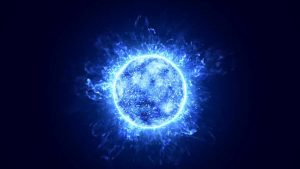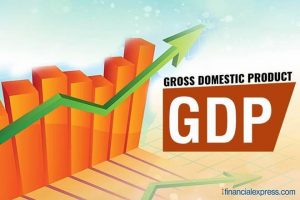Today Current Affairs: 2nd December 2021 for UPSC IAS exams, State PSC exams, SSC CGL, State SSC, RRB, Railways, Banking Exam & IBPS, etc
Table of Contents
Abundance Of Lithium In Stars:

Scientists have found a clue to the mystery behind the high abundance of Lithium in some evolved stars.
- The mystery is the reason behind the high abundance of Lithium in stars, which according to predicted models must get destroyed in the hot plasma of the star.
- Lithium is a trace element on Earth, and a key component of rechargeable batteries.
- The research involved the investigation of lithium among red giants showed that just about 1% of sun-like red giants had a lithium-enriched surface.
- The research surveyed (called GALAH – named after a common Australian bird) a collection of about 500,000 stars with well-determined physical and chemical properties, including lithium abundances.
- Regarding the reason for Lithium production, scientists have for the first time confirmed that all the lithium-rich stars are burning helium in their core.
- They speculated that lithium production is linked to the violent helium-core flash.
- It is proposed to be a simple and short sequence of nuclear reactions involving a collision between the two stable helium isotopes which led to a stable lithium isotope.
- The survey revealed the rare presence of lithium-rich giants in all the Sun-like low-mass stars.
Lithium:
- It is a chemical element with the symbol Li.
- It is a soft, silvery-white metal.
- Under standard conditions, it is the lightest metal and the lightest solid element.
- It is highly reactive and flammable, and must be stored in mineral oil.
- Lithium has become the new ‘white gold’ as the demand for high performing rechargeable batteries is rising.
- Rising global lithium demand and surging prices have drawn increased interest in the so-called ‘lithium triangle’ that spans parts of Argentina, Bolivia and Chile.
Roshni Act: Jammu And Kashmir

A year after the High Court struck down the Roshni Act, the Jammu and Kashmir government has now begun an exercise to retrieve the land granted under this Act to beneficiaries.
- There are allegations related to irregularities in the implementation of the Jammu and Kashmir States Land (vesting of ownership to the occupants) Act, also known as Roshini Act, which has now been declared null and void.
- On November 1, 2020, the Union Territory administration cancelled all land transfers that took place under the JK State Land (Vesting of Ownership to the Occupants) Act, 2001.
About the Roshini Act:
- Enacted in 2001, the law sought to regularise unauthorised land.
- The Act envisaged the transfer of ownership rights of state land to its occupants, subject to the payment of a cost, as determined by the government.
- The government said the revenue generated would be spent on commissioning hydroelectric power projects, hence the name “Roshni”.
- Further, through amendments, the government also gave ownership rights of agricultural land to farmers occupying it for free, charging them only Rs 100 per kanal as documentation fee.
- In 2009, the State Vigilance Organisation registered an FIR against several government officials for alleged criminal conspiracy to illegally possess and vest ownership of state land to occupants who did not satisfy criteria under the Roshni Act.
- In 2014, a report by the Comptroller and Auditor General (CAG) estimated that against the targeted Rs 25,000 crore, only Rs 76 crore had been realised from the transfer of encroached land between 2007 and 2013, thus defeating the purpose of the legislation.
- The report blamed irregularities including arbitrary reduction in prices fixed by a standing committee, and said this was done to benefit politicians and affluent people.
Veer Savarkar:

Central Information Commissioner (CIC) Uday Mahurkar recently said the era of V D Savarkar, known as the architect of Hindutva ideology, has already set in in India and that his personality is above Bharat Ratna, the highest civilian honour.
- A quote attributed to Savarkar has been going around in academic circles which shows that Savarkar supported Jinnah’s two nation theory.
- However experts are of the opinion that while Jinnah wanted partition, Savarkar wanted Territorial Integrity of India.
- Jinnah wanted minority representation while Savarkar wanted Majority rule.
- Jinnah wanted residuary powers to reside in the provinces but Savarkar wanted them to reside in Centre.
- Jinnah wanted reservation in recruitment to civil/public service while Savarkar wanted merit to be the sole criterion.
Veer Savarkar:
- Born on May 28, 1883 in Bhagur, a city in Maharashtra’s Nashik.
- Formed a youth organization- Mitra Mela, this organization was put into place to bring in national and revolutionary ideas.
- He was against foreign goods and propagated the idea of Swadeshi.
- He championed atheism and rationality and also disapproved orthodox Hindu belief. In fact, he even dismissed cow worship as superstitious.
- He also Worked on abolishment of untouchability in Ratnagiri. Dr Babasaheb Ambedkar also compared his work to Lord Buddha.
- Vinayak Savarkar was a president of Hindu Mahasabha from 1937 to 1943.
- When congress ministries offered resignation on 22nd oct 1939, Hindu mahaasabha under his leadership cooperated with Muslim league to form government in provinces like Sindh, Bengal and NWFP.
- In Pune, Savarkar founded the “Abhinav Bharat Society”.
- He joined Tilak’s Swaraj Party.
- He founded the Free India Society.
- The Society celebrated important dates on the Indian calendar including festivals, freedom movement landmarks, and was dedicated to furthering discussion about Indian freedom.
- He believed and advocated the use of arms to free India from the British and created a network of Indians in England, equipped with weapons.
InFinity Forum:

Prime Minister Narendra Modi will inaugurate InFinity Forum, a thought leadership Forum on FinTech, on 3rd December, 2021 at 10 AM via video conferencing.
- The event is being hosted by International Financial Services Centres Authority (IFSCA), under the aegis of Government of India in collaboration with GIFT City and Bloomberg on December 3 and 4, 2021.
- Indonesia, South Africa and the U.K. are partner countries in the first edition of the Forum.
- InFinity Forum will bring together the leading minds of the world in policy, business, and technology to discuss and come up with actionable insight into how technology and innovation can be leveraged by the FinTech industry for inclusive growth and serving humanity at large.
- The agenda of the Forum will focus on the theme of ‘Beyond’; with various sub themes including FinTech beyond boundaries, FinTech beyond Finance and FinTech Beyond Next.
- The forum will witness participation from over 70 countries.
- The International Financial Services Centres Authority (IFSCA), headquartered at GIFT City, Gandhinagar Gujarat, has been established under the International Financial Services Centres Authority Act, 2019.
- It works as a unified authority for the development and regulation of financial products, financial services and financial institutions in the International Financial Services Centre (IFSC) in India.
- At present, the GIFT IFSC is the maiden international financial services centre in India.
Barbados:

Nearly 400 years after the country became a British colony, Barbados has become the world’s newest republic.
- The Caribbean island nation removed Queen Elizabeth II as the head of the state in a ceremony attended by Prince Charles. Barbados, however, will continue to be one of the 54 Commonwealth nations.
- Dame Sandra Prunella Mason, who was selected to become the first president of Barbados last month, took over as the President of the country.
- There are no plans to change the flags, coat of arms, national pledge or national anthem. However, the terms “royal” and “crown” would be dropped from all official references.
- Hence, Royal Barbados Police Force will become Barbados Police Force and crown lands would become state lands.
- Barbados, which is said to have been made a ‘slave society’ by the British, first became an English colony when a ship arrived at the Caribbean in 1625.
- On November 30, 1966, Barbados gained its independence.
India’s GDP:

India’s gross domestic product (GDP) grew by 8.4% in the July to September quarter, compared to a 7.4% contraction a year ago, with the economy’s gross value added (GVA) rising 8.5%, the National Statistical Office said.
- Factoring in the first quarter GDP growth of 20.1%, the first half of this year has recorded 13.7% growth and India is likely to record double digit growth for 2021-22 as a whole, the Finance Ministry’s Chief Economic Adviser (CEA) Krishnamurthy Subramanian said.
- Economists, however, were not fully convinced about the extent and durability of this recovery and reacted with caution.
- Though the absolute GDP in the second quarter (Q2) was 0.3% higher than pre-pandemic levels, there were still many worrying areas.
- In particular the insipid private consumption spending that still languished below pre-COVID levels along with activity in employment-intensive sectors like construction and contact-intensive sectors like retail and hotels.
- The base effect of negative growth last year also helped nudge the GDP numbers up, most independent economists say, although the CEA said the base effect by itself does not make the recovery ‘less noteworthy’.




